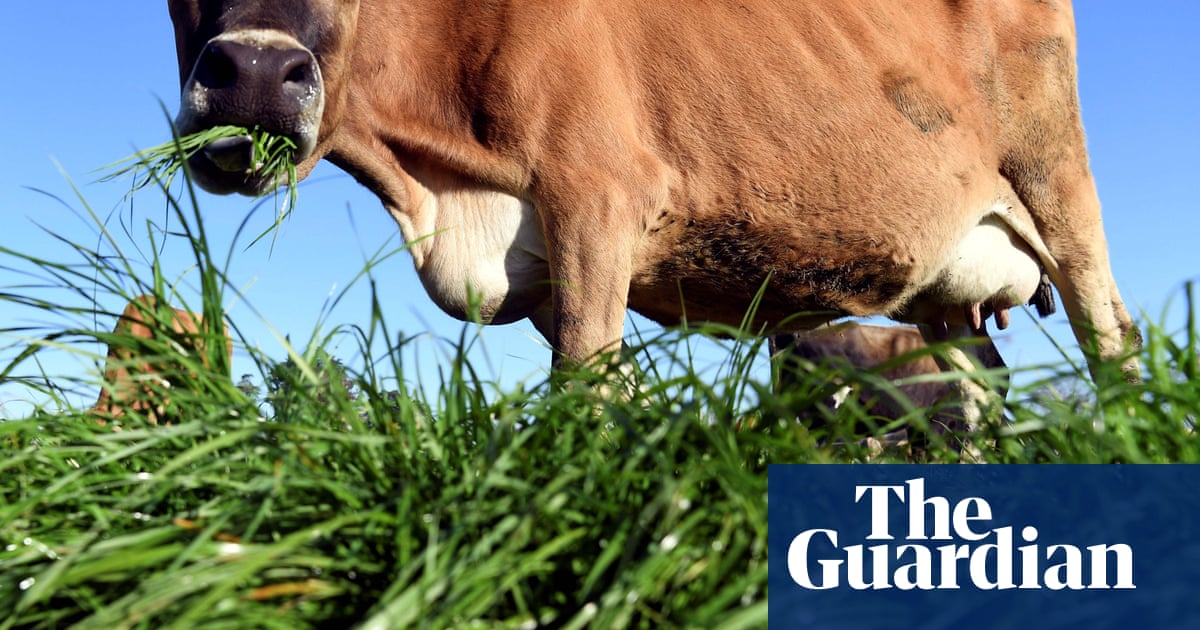New Zealanders Pursue Affordable Butter Amid Skyrocketing Prices










2025-06-05T23:42:00Z

In New Zealand, a nation known for its rich dairy production and exports, many residents are going to extraordinary lengths to obtain affordable butter. With dairy prices soaring to unprecedented heights, individuals are embarking on long drives across the country, placing orders from Australia, or even turning to homemade solutions by churning their own cream.
Recent statistics from Stats NZ reveal a staggering 65% increase in domestic butter prices in the year leading up to March, resulting in an average cost of $7.42 NZD (£3.30) for a 500g block. This represents an increase of approximately $3 NZD compared to prices just one year ago. Such elevated prices stand in stark contrast to New Zealand's status as the world’s leading exporter of dairy products.
The situation has led to some unusual consumer behaviors. Shoppers have been lining up at Costco in Auckland, attempting to buy butter in bulk, prompting store management to impose a cap of 30 blocks per person to curb excessive stockpiling.
In a notable response to the butter shortage, Kaleb Halverson, a local resident affectionately dubbed the “Costco cowboy” and “butter bandit”, has turned his frustration into opportunity. After realizing the demand for affordable butter in his Taranaki community, he began offering a delivery service that involves a ten-hour round trip to Auckland. Halverson recounted to the news outlet Stuff, “Demand was crazy – there were quite a few people wanting five to 10 packs each.” His Facebook page swiftly garnered attention, with an influx of orders for Costco goods, particularly butter.
Interestingly, the butter crisis has even inspired creativity in fundraising efforts. Leithfield School in Canterbury recently opted to sell butter instead of typical fundraising items like baked goods or chocolates. According to principal Rob Cavanagh, the initiative was remarkably successful, yielding 19,000 blocks sold, which highlighted just how valuable butter has become in today’s economy. “I wasn’t quite aware of what a popular commodity butter is in this day and age,” Cavanagh expressed.
Amidst these challenges, many individuals have turned to social media platforms to share tips on how to make homemade butter, a trend that underscores the resourcefulness of New Zealanders facing high prices. Bakeries across the country are also grappling with the dilemma: they must choose between raising prices or risking closure. Luella Penniall, the owner of Kayes Bakery in Southland, voiced her frustration over having to import butter from abroad while being situated in a nation renowned for its dairy production. “Farmers deserve everything they get, they work hard, but somewhere in between it seems to be getting out of control,” she lamented.
Kayes Bakery, which utilizes approximately three tonnes of butter every two months, often relies on an Australian broker to source competitively priced butter of the necessary quality. Unfortunately, this means that nearly half of her butter orders come from Australia, a situation that would be unthinkable for many in a country that produces so much dairy product.
According to Brad Olsen, the chief executive of Infometrics, the high local prices are a consequence of global supply issues coupled with robust international demand for New Zealand's dairy products. Approximately 95% of the nation’s dairy products are exported, which means that international market trends heavily influence domestic pricing. Olsen described this scenario as “a double-edged sword,” where the high prices, while beneficial for the national economy, present significant challenges for local consumers. He remarked, “I’m not saying that at the moment it’s the right happy balance, but given that commodity prices are going to be dictated by the international market, that is sort of how the game is played.”
 Robert Jackson
Robert Jackson
Source of the news: The Guardian